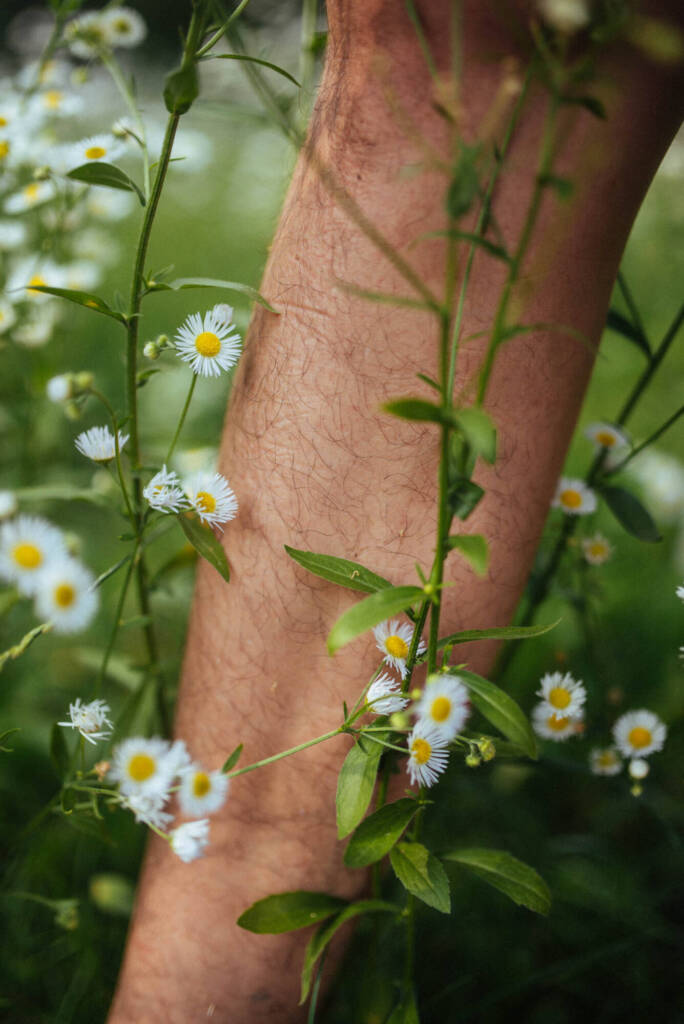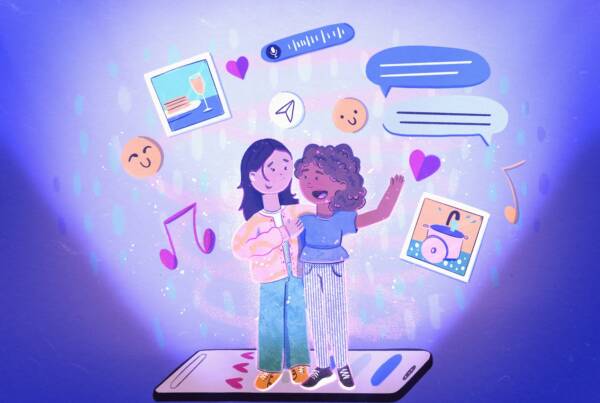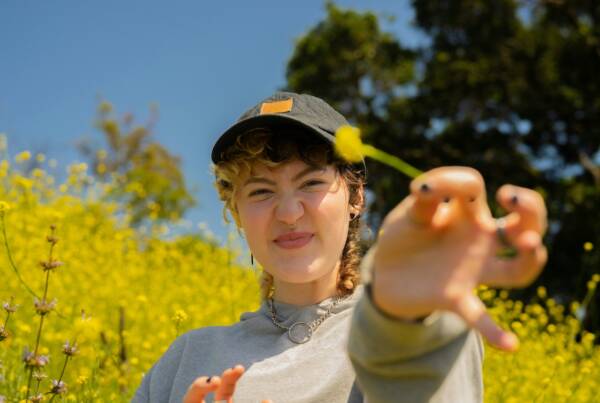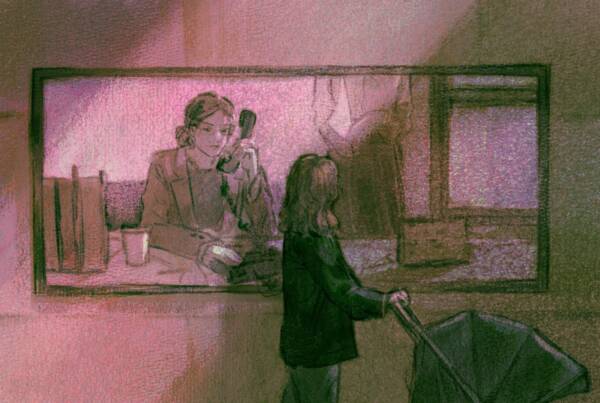Writing by Isobel Knight // photograph by Karolina Jackoswka
It’s early October in a strange year and everything feels like a trap. We’re surrounded by huge, seemingly insurmountable global problems, imperfect or elusive solutions and abundant misinformation. Across Australia, we’ve been in and out of lockdown for more than a year, making planning for the future feel like putting a hand tentatively on a wire that might shock us into retreat again. We don’t need to imagine networks of lizard people; we know that several large corporations shape a huge number of our interactions with the world. We know the rules are often different for rich people. We know that government negligence and profit-chasing cultures have the largest negative effect on those who are already poor or otherwise marginalised.
This is a subjective list of things I, a young, white, cis person, came up with as an attempt to rebel against what feels inevitable. For many, survival, visibility, and presence is rebellion, and should be applauded as such. This list merely aims to encourage readers to live alongside each other with compassion.
In her poem ‘Good Bones’, Ohio-based poet Maggie Smith says; ‘Life is short and at least fifty percent terrible, and for every kind stranger there is one who would break you, though I keep this from my children.’ In the decade when the term ‘doomscroll’ was coined, it’s not difficult to see what she means. However, by taking the poet’s statistics from another angle, however, there’s a chance to see a world full of nearly fifty percent kind strangers.
Every item on the list below could be given ten caveats; ‘this may not be accessible to everyone’, ‘this may not be advisable for everyone’, ‘perhaps this is something you need someone to do for you’. The intention, like the realtor/parent at the end of Smith’s poem, is to point us to the good bones of the world.
With the least hustle-culture intent possible; you are where you are, and you have what you have. Whatever that means for you, these are some ideas of ways you could use what you have to carry out small rebellions against things that feel, but aren’t always, inescapable.
SO YOU HAVE SOME TIME
Plant edible plants. Gardening requires both expertise and resources, but there are lots of people on the internet (and probably in your community) with both of these things! And there are plenty of empty nature strips/milk cartons/tiny window sills waiting for you. People need to eat. There are big industrial systems between us and our food right now. Even tiny entrances into the slow process of feeding yourself and each other can give you perspective.
Volunteer. There’s no need to put it on a CV. Consciously deciding to do something with your time that is not about making money rebels against one of the great traps of our time, and there’s lots of groups doing good things that need a hand. Local foodbanks or op-shops are a great place to start.
Make your own crap art. Sing. Sing badly if that’s what you’ve got. Draw with your fingers in the notes app on your phone or on the glass in the shower steam. Participate in the ancient act of people telling each other stories and expose the lie of all art being hidden behind a paywall, or attached to advertising. Art isn’t reserved for children and those who are paid (and often under-paid) to do it. Our ‘meritocracy’ exists within capitalist systems and separates us from things that belong to everyone. There are few things as grounding in the present as creative acts, particularly communal ones.
SO YOU HAVE SOME MONEY
Buy even a little bit of your groceries from a small business. Choose the farmer’s union milk. Go to the local greengrocer. Get bread from a local bakery. Individuals can’t really crack monopolies, but if there’s a chance to stick it to them even a little, it’s both great for the small business you bought it from and invigorating to feel like you have a bit of choice.
Donate to a group that’s already doing good work. There are people who know more about most issues than you, and that’s actually great news. It’s not your individual job to be a hero, it’s our collective job to care for each other. Read up on grassroots movements and organisations in your local area. Make sure you know the history of the land you’re living on; maybe donate to local Indigenous groups, or buy from local blak business. A lot of good things need people to notice them and decide to fling a few dollars their way.
SO YOU HAVE A BODY
Donate blood (if you’re permitted and able). Asides any current, global health crisis, there are people who need blood transfusions all the time. You get a milkshake or a lollipop, and someone gets to live another day. That’s a pretty great trade-off.
Leave your phone*/fitbit/apple watch at home and do something that doesn’t cost money. Bush walk. Go to the park and lie down with a book. Walk laps of the neighbourhood. If you’re lucky enough to live near a body of water you can swim in, maybe swim. It might be boring, but that’s fine. It makes several corporations lots of money to have us hooked on being constantly entertained and always reachable. Even a little break, an hour away from it all can help reset your brain. (*for safety reasons you may want to keep your phone with you, try switching it to airplane mode/do not disturb.)
If you notice something about yourself you don’t like, leave it, even just for a day. Don’t fill in your brows. Don’t put the foundation on. Don’t constantly fix your hair. Leave it. You don’t owe the world a prescribed version of attractiveness. We’re social beings and it’s nice to feel good about how you look, but it’s important to be ‘ugly’ and out in the world too. Because we’re ugly sometimes. Money is made selling us things that are meant to ‘fix’ both us and our self-esteem. It’s healthy to remember sometimes that it doesn’t matter. That you’re still as much of a person if you don’t do the ‘fixing’ labour that’s asked of you.
SO YOU HAVE SOME ENERGY
Find out who your local member is; ring them and ask what their climate change plan is. Passing legislation to protect and make climate resilience plans for all rivers, for example, is going to take forever and probably come too late. Ringing your local member, showing up at their office if restrictions allow, and asking what they’re doing for your river in your town can happen today. They are meant to represent you; whether you voted for them or not, they need to (and often want to) hear what you have to say.
Ring Scott Morrison. Ring him every day if you want, ring on a public phone if you like so it doesn’t cost you money. Be polite to the person on the other end of the line. If you’re stuck for how to articulate what you want to say, try writing a letter, or try just saying ‘Hi, i’m ____ and I’m from ____ and I really want to pass on my concern about [climate change and its impacts/Australia’s treatment of refugees/how vulnerable communities are being under-supported in this covid crisis/the delay on enshrining an Indigenous voice to parliament/other issue of your choice]. I would be interested in getting a reply from the Prime Minister.’ I can give no similar assurance that he will want to hear what you have to say, but it’s still an act of engaged citizenry that improves democratic process; asking your representatives to actually represent you.
Even though there are many forces outside your control, your actions and choices do have consequences; for better or worse we are bound to each other. It’s only in the interests of those who profit from our apathy to deny the impact of small acts of rebellion, especially those done in the face of overwhelming odds. While it’s impossible for one person to fix things alone, it’s always worth taking any steps we can in positive directions. ‘This place could be beautiful,’ this list and Smith’s poem assert, with hope, ‘you could make this place beautiful’.







